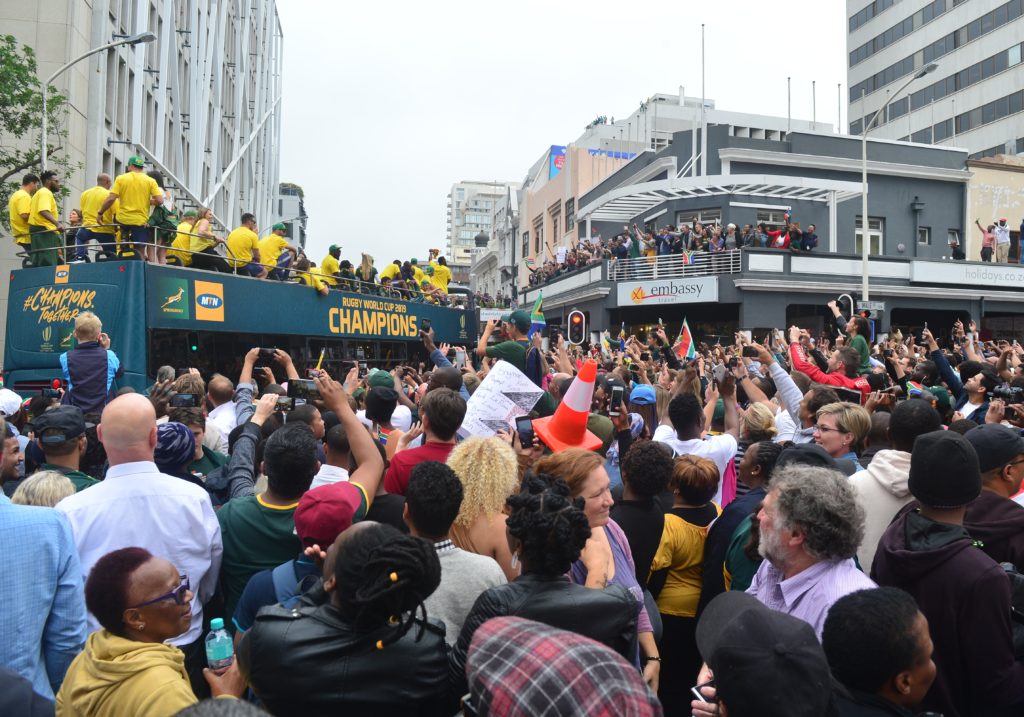The Springboks’ World Cup journey had a powerful impact on a global, national and personal level, writes former Springbok STEFAN TERLBANCHE.
When I spoke to Ollie le Roux the week before the World Cup final, he immediately said the Boks would win by 20 or more points.
My response was less than flattering. I reminded him that he should take his prescription drugs and that all those blows to the head while playing rugby were finally catching up with him. But he backed up his talk with a wager, and now I owe him money.
Spending some time in Japan during the World Cup I again realised what sport is all about and that the core values for which it stands are so much more than just 30 grown men chasing a ball for 80 minutes.
The tournament can only be described as a huge success and it not only grabbed the imagination of Japan and its people but also that of new audiences across the world. TV viewership numbers showed half the Japanese nation watched the hosts play the Springboks in the quarter-final, and in a country with a population of a 126-million, that’s a big number.
There are many ways to gauge the success of a tournament and the impact it had on people. For South Africans, we would agree it has been a successful tournament with Siya and the team lifting the William Webb Ellis trophy. Many who watched at the stadium and across the world on TV all felt part of the success and journeyed with this team. I certainly did.
When you retire as a professional player you go through different stages as you get used to life after rugby. Many ex-players, including myself, are not sure how to deal with it. At times you are happy, sometimes sad and other times grateful that you played the game you loved as a kid for a living. But then when old injuries come back to haunt you, you almost hate it.
New issue: How the Boks united a nation
There is no set manual or guidance notes on how to deal with retirement and you have to take the lead and create your own pathway.
I have always looked back fondly and would not change anything in my playing career, good or bad. I retired on my terms and my body was still in one piece at 37. In saying that, I have not for one day missed playing the game since retiring seven years ago. That doesn’t mean I don’t look back at missed opportunities on and off the field over the 18 years I played, and that I wouldn’t have loved to have won more trophies.
As an ex-player, you don’t always want your teams to do well because you think it will reflect badly on you and that, should they win, it will point to your mistakes as a player. I know it sounds terrible, but it’s true.
When Siya lifted the World Cup I buried my own demons of opportunities missed, not only in World Cups, but also across all rugby tournaments. I also realised that this team’s journey and success was more than me feeling good about my playing career. It’s bizarre that I had to go all the way to Japan to do that but I can honestly say there was a much bigger plan and healing for me as an individual.
My personal journey was small in comparison to what this team and tournament did for us as a rugby-playing country but, more importantly, as a divided nation. We badly needed this as South Africans and right now we have an opportunity, again through sport, to unite a nation.
Photo: Grant Pitcher/Gallo Images
*Terblanche is a former Springbok who earned 37 Test caps. He is now the CEO of the SA Rugby Legends Association and will serve as a member of World Rugby’s judicial committee at the 2019 World Cup. His column was brought to you by Tuttle Insurance Brokers.






